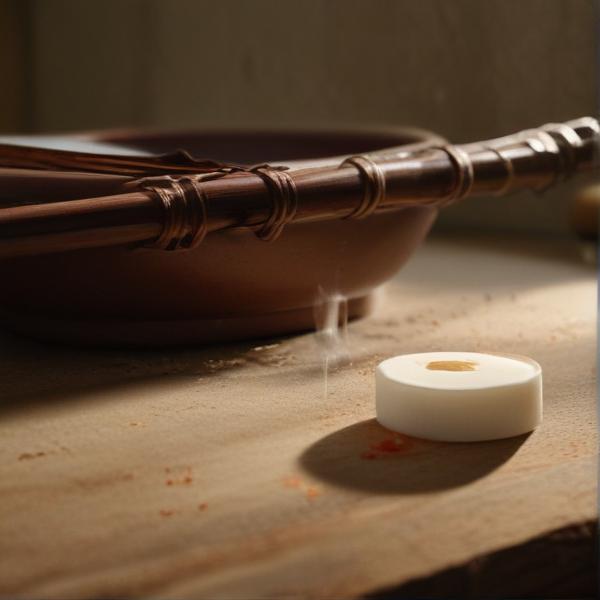基本信息 (Basic Information)
含义与用法 (Meanings & Usage)
中文核心释义 (Core Chinese Meaning): 指用来攻击、防卫的长柄武器或发射子弹的火器,即“长兵器”、“枪支”。
英文核心释义 (Core English Meaning): A weapon with a long handle used for attacking or defending (such as a spear), or a firearm that shoots bullets (gun).
象形意义 / 为何这么写 (Pictographic Meaning / Writing Rationale)
文言文释义 (Classical Chinese Meaning)
深入学习 (In-depth Study)
字源故事 (Origin Story)
字形演变 (Character Evolution)
常用词语和例句 (Common Words & Examples)
枪支 (firearms; guns)
他从未接触过任何枪支。
Eng: He has never come into contact with any firearms.
手枪 (pistol; handgun)
警察腰间挂着一把手枪。
Eng: The police officer has a pistol on his belt.
水枪 (water gun)
小朋友们在花园里用水枪玩耍。
Eng: The children are playing with water guns in the garden.
相关成语 (Related Idioms)
刀枪不入
Meaning: invulnerable to weapons; impenetrable
多语言翻译 (核心释义) (Translations (Core Meaning))
- French: arme à feu; fusil; lance
- German: Gewehr; Pistole; Speer
- Spanish: arma de fuego; pistola; lanza
- Italian: arma da fuoco; pistola; lancia
- Portuguese: arma de fogo; pistola; lança
- Russian: оружие; ружье; копье
- Arabic: سلاح ناري؛ بندقية؛ رمح
- Persian: سلاح گرم؛ تفنگ؛ نیزه
- Dutch: vuurwapen; geweer; speer
- Polish: broń palna; pistolet; włócznia
- Vietnamese: súng; giáo
- Ukrainian: вогнепальна зброя; гвинтівка; спис
视频学习资源 (Video Learning Resources)
通过以下链接在热门视频网站搜索 "枪" 的更多讲解:
Search for more explanations of "枪" on popular video sites:
- 在 Bilibili.com 搜索 "枪 字源 说文解字" (Search on Bilibili)
- 在 YouTube.com 搜索 "枪 character origin etymology" (Search on YouTube)
网络参考 (Web References for "枪") ()
网络内容摘要 (Web Content Summary):
```html核心含义与起源:“枪”是指利用撞针与火药发射子弹的武器,即现代所说的“gun”或“rifle”。它最早见于战国时期的文字,本是以“木”为形旁,表示与木制有关(古代长杆兵器),加上声旁“倉”(在这里仅作声符)。因此,“枪”是一个形声字。后来,“枪”主要指火器,但在古代也泛指长杆武器。 Core Meaning & Origin: "枪" (qiāng) primarily means a weapon that shoots bullets using gunpowder—a gun or rifle. The character appeared as early as the Warring States period. It is a phono-semantic compound: "木" (wood) suggests its original construction as a wooden spear or pole weapon, while "倉" serves as the phonetic component. Thus, it originally referred to pole weapons and now mainly means firearms in modern usage.
- 常见组合词:枪弹(bullet)、枪炮(firearms/artillery)、枪支(guns, firearms)、枪管(gun barrel)、枪伤(gunshot wound)、枪决(execution by shooting)。 Common related words: 枪弹 (bullet), 枪炮 (firearms/artillery), 枪支 (guns/firearms), 枪管 (gun barrel), 枪伤 (gunshot wound), 枪决 (execution by shooting).
- 特别用法与文化背景:在古籍及古诗词中,“枪”有时泛指长杆兵器(如白居易《琵琶行》中的“刀枪鸣”)。现在主要指现代枪械。需注意,古今意义有变化。 Special usage & cultural context: In classical texts and poetry, "枪" could refer to polearms (spear-like weapons), such as in Bai Juyi's famous poem. Nowadays, it mainly refers to modern firearms. Be aware that its meaning has changed over time.
- 易混点:“枪”(qiāng)不能与“枪”(chāng,古音)混淆,两者含义和用法不同。规范字写作“枪”。 Common confusion: The pronunciation "qiāng" should not be confused with its old reading "chāng," which had different meanings/usages. The standard modern form is "枪".
汉字"枪"的起源、演变过程-汉字字源辞典
挟其 枪 刈耨刈。——《国语 • 齐语》 铁骑突出刀 枪 鸣。——唐 • 白居易《琵琶行(并序)》 ②本义,名词:利用撞针与火药发射子弹的武器。 枪弹 枪炮 枪支 枪管 枪机 枪口 枪栓 枪闩 枪膛 枪筒 枪眼 枪伤 枪毙 枪决
枪字形演变字源_汉字「枪」_枪的甲骨文_枪的金文_金文编_甲骨文编
此字始見於戰國文字。戰國文字至楷書字形皆為從木、倉聲。「木」為樹,作為形符,表示義與木有關;「倉」為儲藏穀物的處所,於此僅作為不示義的聲符,表示音讀。在六書中屬於形聲。規範字作「枪」。 汉字:「枪」 字形演变 字源演变
更多图片 (枪 More Images) ()
